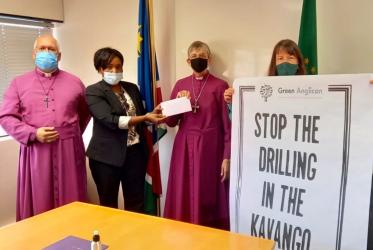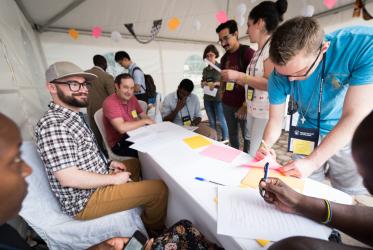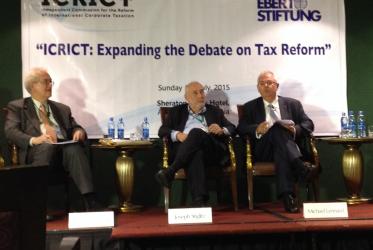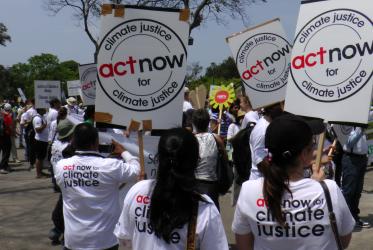Displaying 1 - 15 of 15
27 October 2021
‘Sokoni’ transforms marketplace into mission
13 March 2018
GETI students plant trees, in service for greener future
07 March 2018
Seven weeks of Lent highlight water crisis in Africa
01 March 2017
Winners of WCC photo contest announced
09 May 2016
Land rights focus of panel discussion
17 November 2015
Churches' “prophetic voice” will be busy in 2015
18 June 2015
Churches engage in development dialogue on Africa
06 March 2013












